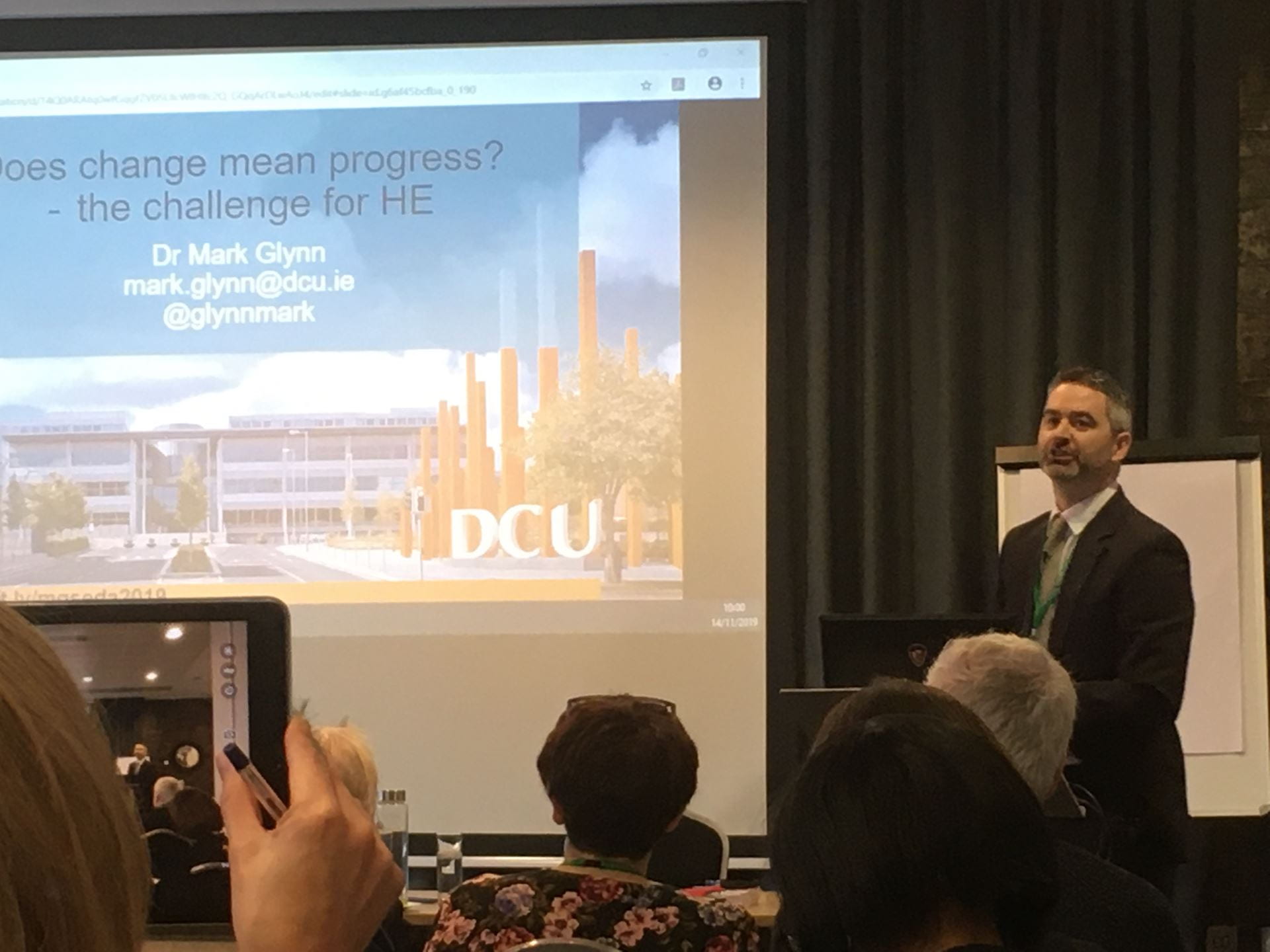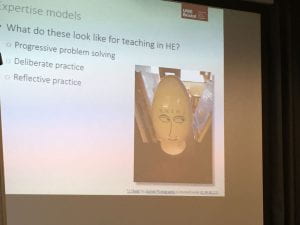 Day one of the conference started with an opening key note Does change mean progress? The challenge for Higher Education by Mark Glynn from Dublin City University. Mark discussed the pace of change today being faster than ever and this impacts how organisations can respond. His centre moved from supporting 1000 staff on one campus to supporting 1600 staff on three campuses and so this meant reviewing their role and offer. The focus on five key areas which are curriculum design, staff development, teaching and learning awards, Scholarship of teaching and learning and Loop (which is the tern they use for all their educational technologies to support education). Mark also discussed things that impact on students and the biggest is the access to information which is greater than ever before but also is available in diverse ways. The challenge therefore for students is filtering this information. Mark then discussed some of the projects that the team had responded to with assessment being key in today’s world where students are targeted via media in relation to essays and support offered. The staff had spent time on an assessment integrity project focused on designing assessment so that good practice was promoted.
Day one of the conference started with an opening key note Does change mean progress? The challenge for Higher Education by Mark Glynn from Dublin City University. Mark discussed the pace of change today being faster than ever and this impacts how organisations can respond. His centre moved from supporting 1000 staff on one campus to supporting 1600 staff on three campuses and so this meant reviewing their role and offer. The focus on five key areas which are curriculum design, staff development, teaching and learning awards, Scholarship of teaching and learning and Loop (which is the tern they use for all their educational technologies to support education). Mark also discussed things that impact on students and the biggest is the access to information which is greater than ever before but also is available in diverse ways. The challenge therefore for students is filtering this information. Mark then discussed some of the projects that the team had responded to with assessment being key in today’s world where students are targeted via media in relation to essays and support offered. The staff had spent time on an assessment integrity project focused on designing assessment so that good practice was promoted.
 There were a range of parallel sessions for the day. David Killick presented a session on Opening Frontiers in intercultural academic practice: concept mapping as an equitable approach. The session was related to work David had been doing with staff both nationally but also those who were in partner institutions internationally to explore intercultural practice.
There were a range of parallel sessions for the day. David Killick presented a session on Opening Frontiers in intercultural academic practice: concept mapping as an equitable approach. The session was related to work David had been doing with staff both nationally but also those who were in partner institutions internationally to explore intercultural practice.
David outlined this one approach to concept mapping as well as engaging all participants in an activity doing this. David provided some background to this and provided reference to some of the theory underpinning this methodology. Concept mapping is a graphical tool for organising and representing knowledge. This was developed with reference to neurological processes that the brain uses. David outlined a four stage process which was 1) identify the concept, 2) provisionally arrange all with the general concepts at the top and then more specific ones below, 3) now link these with arrows and add a verb to link these and you may add more concepts at this point and move them around and, 4) prepare and present to colleagues.
Helen King provided a parallel session on Professional Development: Reframing the paradigm which was focused on some research she had undertaken. Helen has explored the vast amount of literature on expertise and characteristics of this and there were three main categories which were:
• Knowledge and skills
• Ways of thinking and practising
• Self-determined learning and development
There were some main models also in the literature and these were:
• The progressive problem-solving (Bereiter & Scadamalia 1993) and this model sees some actions becoming automatically taken which frees up time for thinking
• Deliberate practice (Ericsson et al 1993) where some have referred to 10,000 hours practice being the key but this depends on the practice. The model focuses on practice-time-focus-feedback- motivation.
• Reflective practice and Helen referred to some of the many models
Helen’s research was undertaken with nine teachers who gained their NTFS between 2015 and 2017. Semi -structured interviews were undertaken and Helen then analysed these to explore their lived experience of professional development for teaching in higher education. Some of the models above were discussed but also Helen felt that there was also something coming through about the artistry of teaching which reflects some of Schon’s work and the authenticity of practice.


